Undergraduate Handbook
Table of Contents
- Incoming Students
- Applied Lessons
- Ensemble Participation
- Practice Rooms
- Lockers
- Department Courses
- Degree Programs
- Advising
- Faculty and Staff
- Undergraduate Research
- Honors Programs
- Student Recitals
- Buildings and Performance Venues
- Music Library
- Study Abroad and Global Partnerships
- UNC Music Ambassadors
- Music Fraternities and Sororities
- Extra-Departmental Music Student Organizations
- Contact
I. INCOMING STUDENTS
Tonal Music Theory Diagnostic Exam
For 2023-2024, we are not requiring a theory diagnostic for incoming music students. Read more about the placement and selection of theory courses here.
Check what credit your AP Music Theory score will count for here.
Academic Planning
See the Advising section for a checklist of what courses to take now and things to keep in mind as you progress through your music degree program.
Incoming Music Students Page
Get the latest dates and other important information on the Incoming Music Students Information page.
II. APPLIED LESSONS
Individual instruction for academic credit (private lessons) in piano (classical), woodwind, brass, percussion, string instruments, jazz instruments, and voice is available to all University students regardless of major. Music majors are given priority for all lessons instructors, and music minors and non-majors are also welcome, based on the availability of the faculty.
For students interested in taking music composition for lesson credit or as an elective, MUSC 166 is the usual first course. Students with previous composition experience may contact Professor Lee Weisert (weisert@unc.edu) about enrolling directly in MUSC 266 without the MUSC 166 prerequisite. Have some examples of your work to share and discuss.
Less experienced students may consider the Department’s group lessons in guitar, piano, and voice (also for course credit). (Please note, however, that we do not normally offer applied lessons to beginners on a given instrument, and that lessons require an ability to read musical notation fluently.)
Registration for all applied lessons is by permission of instructor (or audition). Instructor contacts and registration procedures are outlined below. When registering on ConnectCarolina, please be sure to correctly select 0.5 credits for 30-minute lessons or 1.0 credits for 50-minute lessons (please note that all 100-level lessons must be 1.0 credit hour).
Types of Lessons
The Department offers four types of applied lessons: individual lessons at the 1XX level (0.5 or 1.0 credit hours), 2XX level (2.0 credit hours), and 3XX level (3.0 credit hours); and group lessons (1.0 credit hour) at the 1XX level. (Full details are available in the Undergraduate Bulletin.) Individual lessons instructors will assign students to the appropriate level of lessons based on their degree program and musical proficiency.
Group 1XX Lessons
Group applied lessons are designed for less experienced performers desiring to expand their proficiency in a particular instrument or voice. Students enroll in these 1XX level lessons for 1.0 credit hour, and group lessons meet once per week for 90 minutes. Presently, group lessons are offered in guitar, piano, and voice.
1XX Level Lessons
Lessons at the 1XX level are generally taken by music majors pursuing the B.A. degree, music minors, and non-majors. Students may enroll for 1XX lessons for 0.5 or 1.0 credit hours, subject to instructor availability. Please note that all 100-level lessons in voice must be 1.0 credit hour.
2XX Level Lessons
Lessons at the 2XX level are generally taken by music majors pursuing the B.M. degree and appropriately qualified students pursuing the B.A. degree or music minor. Students enroll in 2XX lessons for 2.0 credit hours, which encompasses a weekly one-hour lesson as well as a weekly studio class. B.M. students normally enroll for eight semesters of 2.0 credit lessons on their main instrument.
3XX Level Lessons
3XX level lessons are reserved for students pursuing the B.M. or B.A. degree who wish to include a recital in their applied study. Students enroll in 3XX lessons for 3.0 credit hours. 3XX lessons substitute for 2XX lessons in the recital semester, and may be taken in up to two semesters during a student’s degree program. Lessons at the 3XX level have a prerequisite of six hours of the equivalent MUSC 2XX course.
Applied Lessons Registration
All students enrolling for applied lessons must do so during the regular University registration period at the beginning of each semester. Students desiring to register for lessons should complete the following steps.
- Acquire permission from the appropriate instructor or area head. A list of appropriate contacts for each instrument is available below. (For piano and voice, permission to enroll for lessons is acquired via an audition process during the first week of classes.)
- After receiving instructor approval, register for your applied lesson course on Connect Carolina. Note that applied lesson courses are arranged in sections by instructor, and students should be sure to enroll with the correct instructor. Please be sure to correctly select 30-minute (0.5) or 50-minute lessons (1.0).
Applied Lesson Fees (per semester)
Separate fees beyond normal tuition are required for private instruction. These fees are the cost per semester and are billed by the Department Registrar at the end of registration each semester. Unless otherwise requested, applied lesson fees are billed to your student account. There are no refunds for applied lessons. Prices are effective Fall 2023.
- $525 – one-hour private lesson per week
-
$287 – half-hour private lesson per week
- $425 – 90-minute group lesson each week
Faculty Contacts for Applied Instruction
- Banjo: Hank Smith
- Bass (Classical): Leonid Finkelshteyn
- Bass (Jazz): Jason Foureman
- Bassoon: Jessica Kunttu
- Cello: Brent Wissick
- Clarinet: Donald Oehler
- Drumset: Dan Davis
- Euphonium: Mike Kris
- Fiddle: Tatiana Hargreaves
- Flute: Laura Stevens
- Guitar: Billy Stewart
- Guitar (Bluegrass): Russell Johnson
- Guitar (Jazz): JC Martin
- Harp: Laura Byrne
- Horn: Rachel Niketopoulos
- Mandolin: Russell Johnson
- Oboe: Anna Lampidis
- Percussion: Juan Álamo
- Piano (Classical): Clara Yang (please consult piano lesson audition information first)
- Piano (Jazz): Stephen Anderson
- Saxophone (Classical): Heidi Radtke
- Saxophone (Jazz): Rahsaan Barber
- Trombone: Mike Kris
- Trumpet: Rusty Smith
- Tuba: Mike Kris
- Viola: Simon Ertz
- Violin: Nicholas DiEugenio
- Voice (music majors): Jeanne Fischer
- Voice (minor/non-major): Timothy Sparks
III. ENSEMBLE PARTICIPATION
All students at Carolina are welcome to participate in ensembles offered by the Department of Music. Many ensembles are available by audition; some are open to all interested students without audition. The department currently offers the following ensembles.
Carolina Bluegrass Band | Russell Johnson, director (rdjohn@email.unc.edu)
Carolina Choir | Susan Klebanow, director (skleb@email.unc.edu)
Chamber Singers | Susan Klebanow, director (skleb@email.unc.edu)
Charanga Carolina | Juan Álamo, director (jalamo@email.unc.edu)
Gamelan Nyai Saraswati | John Caldwell, director (asiaweb@email.unc.edu)
Global Rhythms Ensemble | Juan Álamo, director (jalamo@email.unc.edu)
Marching Tar Heels | Jeffrey Fuchs, director (jfuchs@email.unc.edu)
University Band | Jeffrey Fuchs, director (jfuchs@email.unc.edu)
University Chamber Players | Donald Oehler, coordinator (dloehler@email.unc.edu)
UNC Baroque Ensemble | Brent Wissick, director (bswissic@email.unc.edu)
UNC Glee Club | Laura Alexander, director (lalexan@email.unc.edu)
UNC Guitar Ensemble | Billy Stewart, director (wstewart@email.unc.edu)
UNC Hip Hop Ensemble | Suzi Analogue, director (analogue@unc.edu)
UNC Jazz Band | Rahsaan Barber, director (rahsaanb@email.unc.edu)
UNC Jazz Combos | Stephen Anderson, coordinator (anderssr@email.unc.edu)
UNC Opera | Jeanne Fischer, interim director (fischerj@email.unc.edu)
UNC Percussion Ensemble | Juan Álamo, director (jalamo@email.unc.edu)
UNC Symphony Band | Erin Cooper, director (cooperec@email.unc.edu)
UNC Symphony Orchestra | Tonu Kalam, director (kalam@email.unc.edu)
UNC Viol Consort | Brent Wissick, director (bswissic@email.unc.edu)
UNC Wind Ensemble | Evan Feldman, director (evanfeldman@unc.edu)
Click here for more information on all of our ensembles and their audition processes.
IV. PRACTICE ROOMS
The Department of Music houses 32 practice rooms in the basement level of Hill Hall with a variety of configurations, resources, and instruments available for student use. Most of the rooms are equipped with an upright or electric piano and a mirror (currently music stands must be provided by students). Six rooms with grand pianos are available for use by piano majors only.
All students enrolled in private lessons or a department ensemble may use the practice rooms for free.
For non-music students, access is approved upon request via our online Practice Room Access request form. Upon approval, you will need to pay the $70 fee in person (via credit card, check, or cash at Hill Hall 105 or 106) to have your One Card activated for access to Hill Hall. Please note there are NO REFUNDS for this fee.
All practice rooms are available on a first-come, first-serve basis. Please wipe down all surfaces before and after use.
If you encounter issues with our pianos, please email Max Mitler at mitler@email.unc.edu.
V. LOCKERS
Lockers within the department buildings are reserved for students currently enrolled in a Department of Music class. Lockers are available on a first-come, first-served basis and are limited in numbers. Due to the availability of sizes, lockers will be assigned by instrument. All lockers must be vacated and locks returned to Kenan Music #1212 by the end of each academic year.
To acquire a locker, please fill out the Music Department Locker Request Form.
VI. DEPARTMENT COURSES
The Catalog is the authoritative resource for all information about degree programs and courses in the Department of Music. It contains detailed requirements for all Department degree programs (B.A., B.Mus., music minor) and emphases, as well as a complete list of music courses with descriptions.
The department offerings of courses can be found within the Catalog at https://catalog.unc.edu/undergraduate/departments/music/#text.
VII. DEGREE PROGRAMS
The Department of Music offers two undergraduate degree programs (Bachelor of Arts, Bachelor of Music, Bachelor of Music w/ Music Education) as well as a minor in music. Each of these programs offers significant flexibility, and can be customized to emphasize specialty areas in music or blend with studies in other disciplines. A brief outline of these programs is below, and you can find complete information in the Catalog.
Bachelor of Arts in Music (B.A.)
The Bachelor of Arts in Music is a versatile degree that offers maximum flexibility for combining with other degree programs. Students pursuing the Bachelor of Arts degree often have additional majors in biology, chemistry, history, economics, pre-medicine, pre-pharmacy, pre-dentistry, global studies, psychology, and many more. With fewer course requirements than the Bachelor of Music degree, this degree is perfect for students wishing to study music at the collegiate level while also pursuing another area of study. Optional pathways are available in any of the areas mentioned below.
Requirements for the B.A. degree can be found on the Catalog website here.
Bachelor of Music (B.Mus.)
Our most intensive degree, the Bachelor of Music, is a course of study for students wishing to pursue music at the graduate and professional level with more credit hours of music courses at UNC. With the option to focus studies in areas such as composition, musicology, performance, and jazz studies, just to name a few, this degree option is ideal as a foundation for future music studies.
Requirements for the B.Mus. degree can be found on the Catalog website here.
Minor in Music
The music minor is an easily attainable supplement to an undergraduate career. With a variety of courses available to satisfy the music minor requirements, students are allowed to mold this degree option however best fits them.
Requirements for the Music Minor can be found on the Catalog website here.
Double-Majoring at UNC
Over half of UNC’s music majors are double majors in another field. Our students often have diverse interests and strive to create their own paths toward success after graduation. Per University Advising, you may choose up to three areas of study. This could be two majors and a minor, or one major and two minors. We recommend you consult with an academic advisor to determine which combination of majors and minors works best for you.
Students with more than one area of study often ask how their degree(s) will appear on their diploma. To learn more about this, please follow the link below to learn more about degree hierarchy at UNC.
VIII. ADVISING
Music students with 60 hours or more of credit must meet with a Department of Music advisor before registering for classes each semester. You may sign up for an advising appointment via the link above. Students may also consider meeting with the Director of Undergraduate Studies, Professor Lee Weisert, for music department or overall academic plan advising.
Prior to completing 60 hours of credit at UNC, students work with academic advisors through the College of Arts and Sciences main academic advising program. More information is available here: https://advising.unc.edu/advisor/.
Academic Checklist *for incoming music majors & minors
- MUSC 120 (Foundations in Music)
- See below for details. It’s best to take this course in your first semester if you plan to pursue a major or minor in music.
- MUSC 128 (Improvisation without Borders)
- See below for details. It’s best to take this course in your first semester if you plan to pursue a major or minor in music.
- Music Theory
- See below for placement information.
- Keyboard Skills
- See below for placement information.
- Ensembles
- The Bachelor of Music requires 8 semesters, so ensembles should be started immediately.
- Lessons
- Similar to ensembles, Bachelor of Music students should get started in individual lessons as soon as possible to meet the required 7 semesters.
- View a sample academic plan for the Bachelor of Music degree here.
MUSIC 120 (Foundations in Music)
MUSC 120 is our gateway course for music students. It is only offered in the Fall semester and is required for the major (both Bachelor of Arts and Bachelor of Music) and the minor. If you are considering a music major or minor, we recommend that you enroll in this course in your first semester.
If you cannot register for MUSC 120 through ConnectCarolina and are planning to major in music, please contact the instructor of the course to discuss enrollment options. Please note that your music theory course placement does not affect your enrollment in MUSC 120; MUSC 120 is not a music theory course.
Music 128 (Improvisation without Borders)
Musc 128 is required for all music majors, both those pursuing a BMus degree and those pursuing a BA in Music. Musc 128 is only offered during the fall semester (not the spring semester). The music department strongly recommends that students take it in their first semester.
Music Theory Placement
For 2023-2024, we are not requiring a theory diagnostic for incoming music students. Read more about the placement and selection of theory courses here.
Check what credit your AP Music Theory score will count for here.
Keyboard Placement
The Bachelor of Music degree has a two credit keyboard skills requirement that may be fulfilled by taking classes chosen from MUSC 100, 136, 200 (with the approval of the Director of Undergraduate Studies), and 236. In most cases, B.Mus. majors with no prior keyboard experience will enroll in MUSC 136 (Fall) and MUSC 236 (Spring) (view a full sample B.Mus. academic plan here). A student may place out of half or all of the requirement by passing half or all of a Keyboard Skills Placement/Exemption Test, which is offered in the days surrounding the beginning of classes each fall and spring semester. You can learn more information, sign up for the placement exam, and view a sample exam here.
IX. FACULTY AND STAFF
Faculty Administrators and Area Heads
| ADMINISTRATORS | ||
| Chair | Jocelyn Neal | jneal@email.unc.edu |
| Associate Chair for Academic Studies | Mark Katz | jneal@email.unc.edu |
| Associate Chair for Performance, Composition, and Music Education Division | Evan Feldman | evanfeldman@unc.edu |
| Director of Undergraduate Studies | Lee Weisert | weisert@unc.edu |
| Co-Chair; Undergraduate Scholarship Committee | Juan Álamo | jalamo@email.unc.edu |
| Co-Chair; Undergraduate Scholarship Committee | LaToya Lain | lalain@email.unc.edu |
| Director of Graduate Studies | Andrea Bohlman | abohlman@email.unc.edu |
| Director of Graduate Admissions | Naomi André | nandre@unc.edu |
| PERFORMANCE AREA HEADS | ||
| Area Head for Brass, Wind, and Percussion | Juan Álamo | jalamo@email.unc.edu |
| Area Head for Composition | Lee Weisert | weisert@email.unc.edu |
| Area Head of Jazz | Stephen Anderson | anderssr@email.unc.edu |
| Area Head for Keyboard | Clara Yang | cyang18@email.unc.edu |
| Area Head for Strings | Nicholas DiEugenio | nicholas.dieugenio@unc.edu |
| Area Head for Voice | Jeanne Fischer | fischerj@email.unc.edu |
| OTHER OFFICERS | ||
| Director of Choral Activites | Susan Klebanow | skleb@email.unc.edu |
| Director of Facilities and Operations | Jeffrey Fuchs | jfuchs@email.unc.edu |
| Director of University Bands | Jeffrey Fuchs | jfuchs@email.unc.edu |
| Department Honors Advisor | Brent Wissick | bswissic@email.unc.edu |
| Diversity Liaison | Clara Yang | cyang18@email.unc.edu |
| Coordinator of Minor/Non-Major Voice Study | Timothy Sparks | tsparks@email.unc.edu |
| Kenan Music Scholars Faculty Advisor | Evan Feldman | evanfeldman@unc.edu |
| Musical Theater Minor Faculty Advisor | LaToya Lain | lalain@email.unc.edu |
| Summer School Coordinator | Evan Feldman | evanfeldman@unc.edu |
Staff
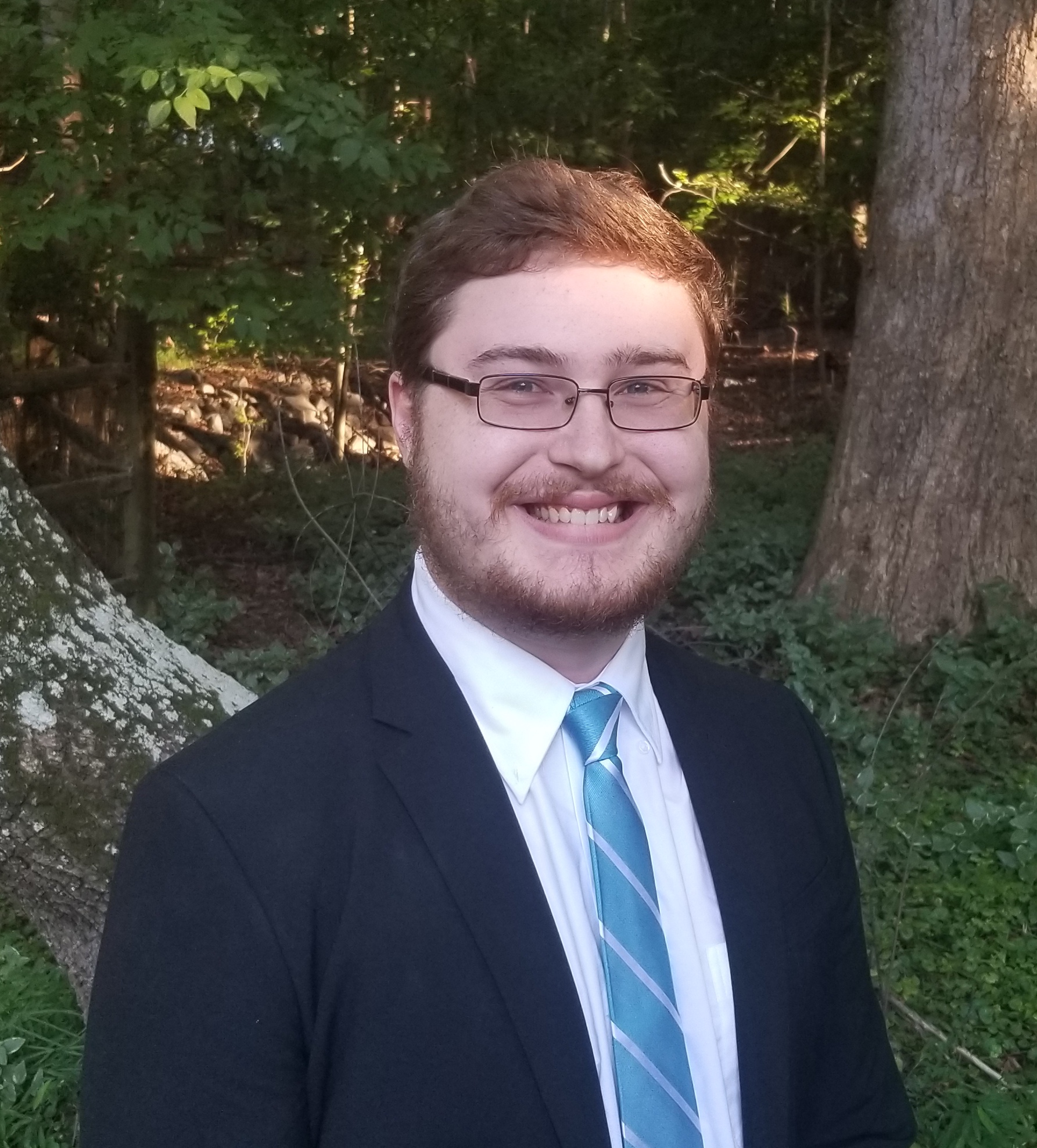 Elliott Chandler | Accounting Technician | 106A Hill Hall elliottchandler@unc.edu (919) 962-6014 |
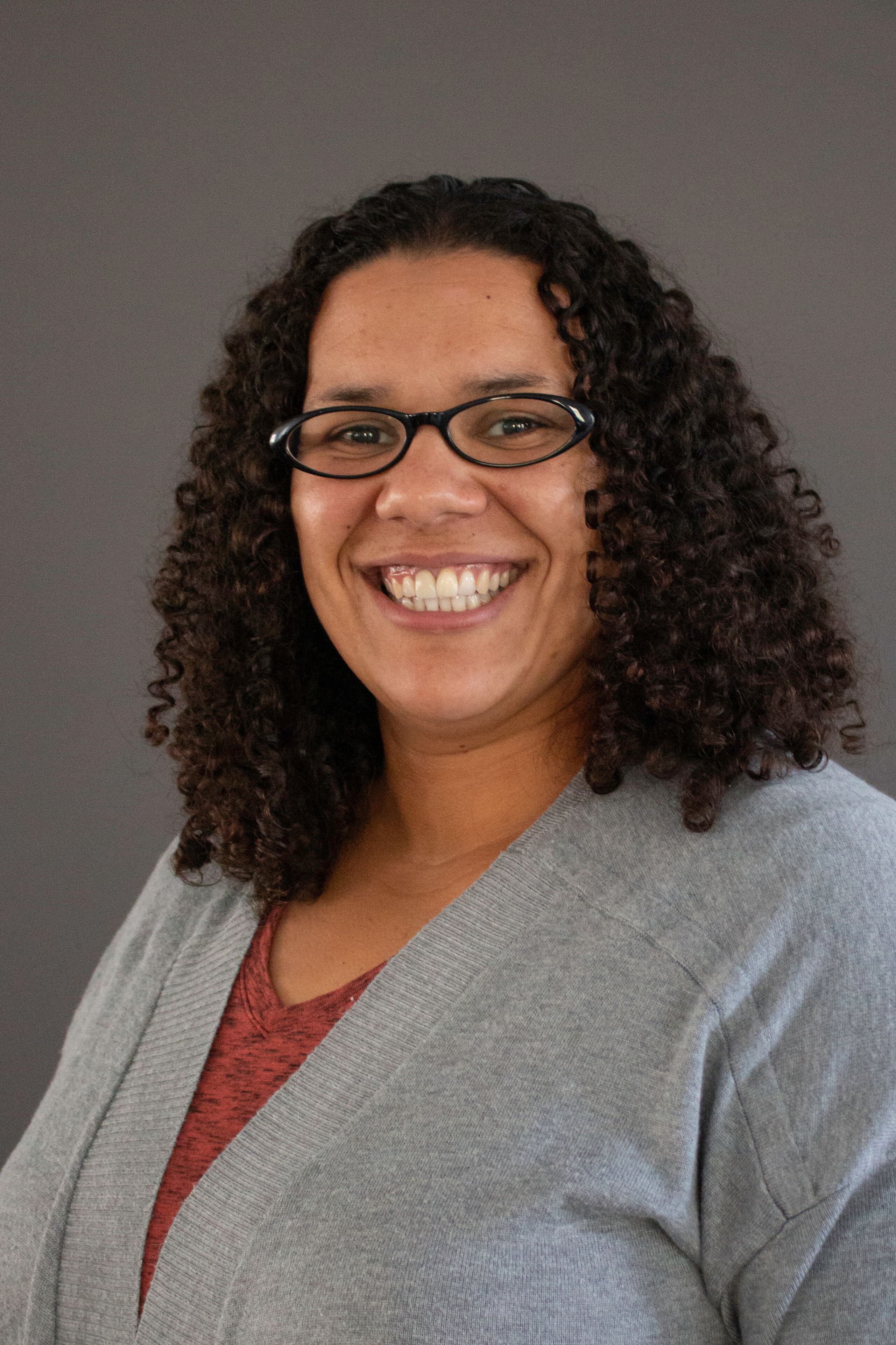 | Business Manager Campus Security Authority and Safe Zone, Mental Health First Aid, & Haven certified | 105C Hill Hall efisseha@email.unc.edu (919) 962-3720 |
 | Multimedia Technician | 1212 Kenan Music Building jwharper@email.unc.edu (919) 843-7915 Reserve a Room |
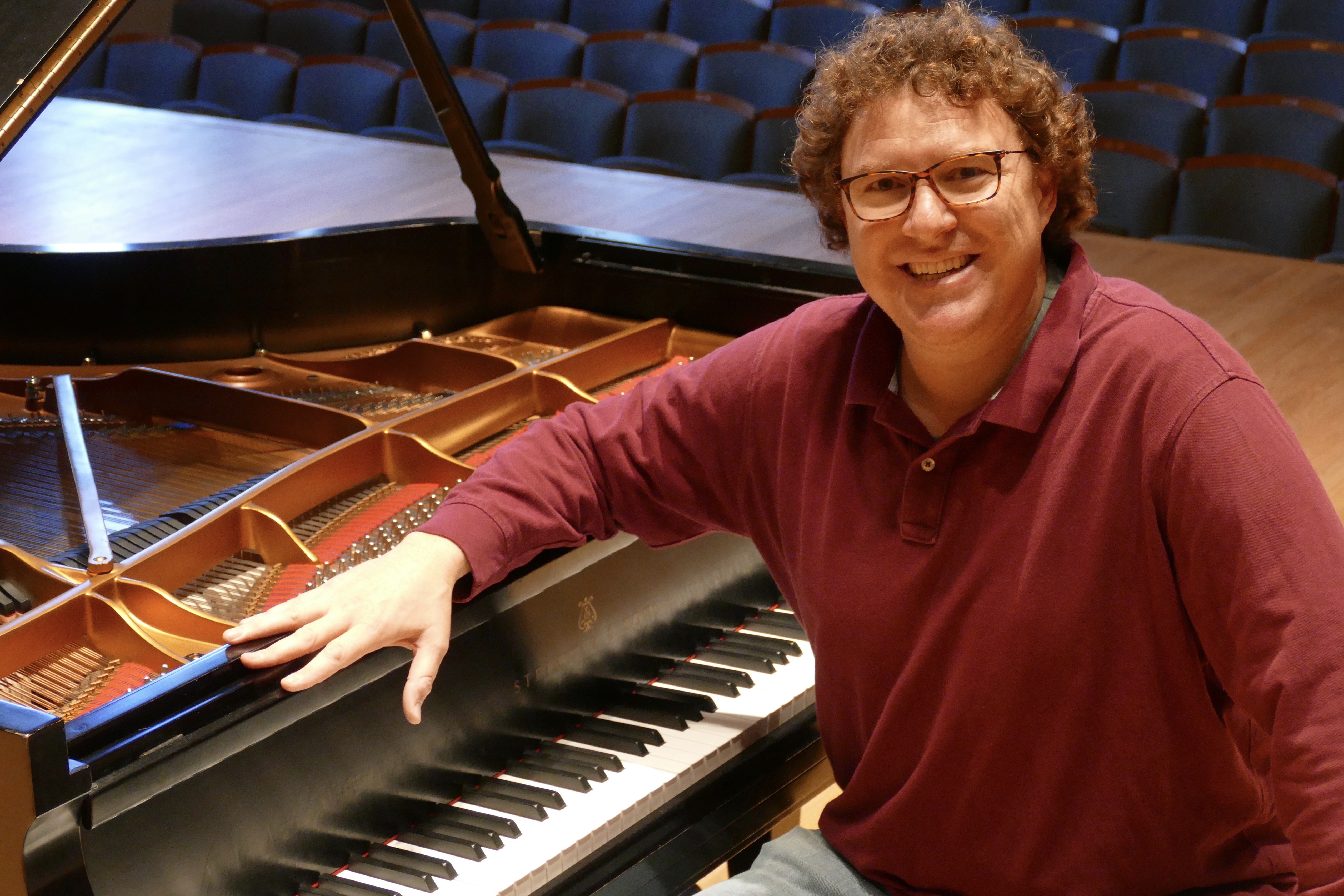 | Piano Technician | 08 Hill Hall mitler@email.unc.edu |
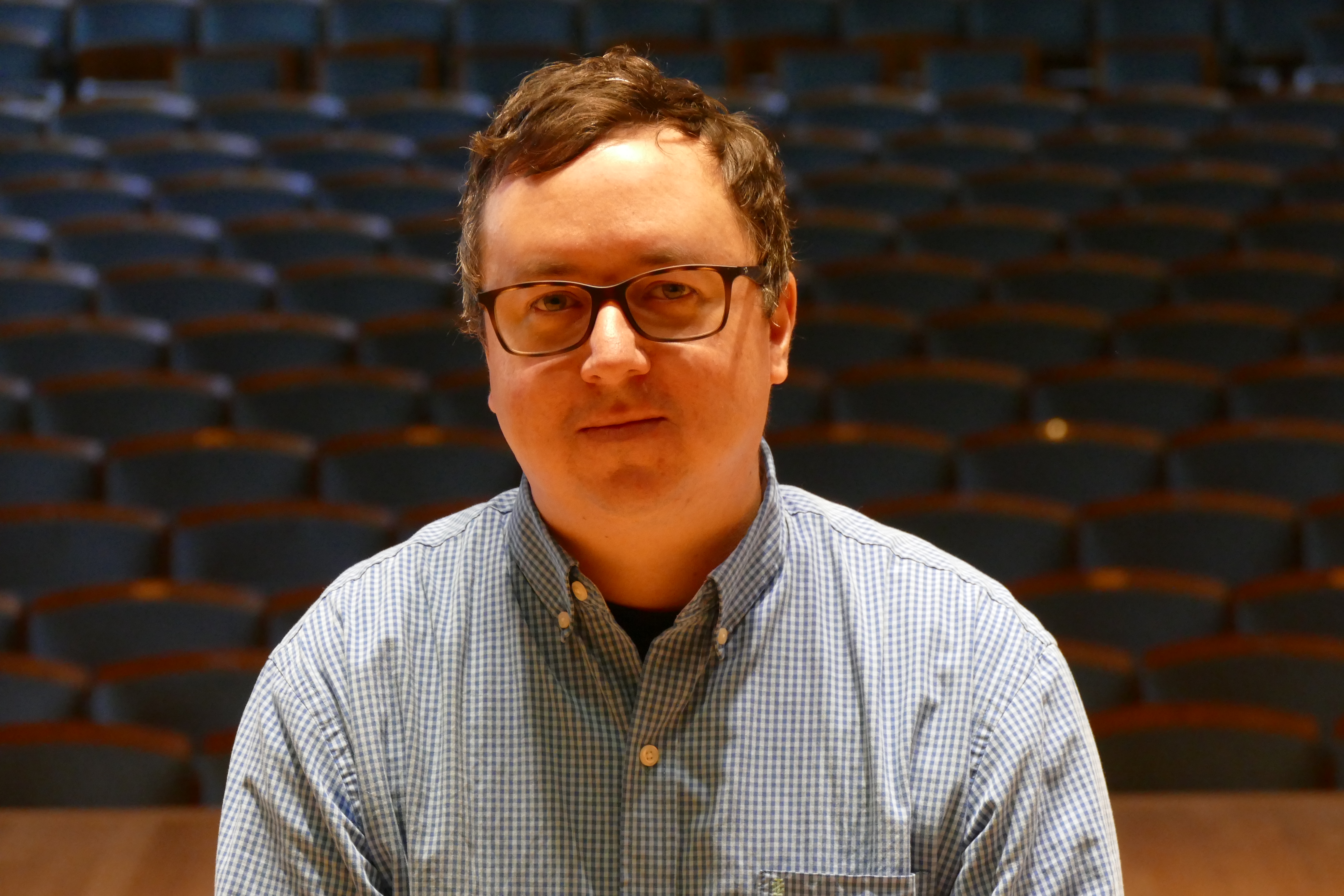 | Production Manager | 102 Hill Hall jmfield@email.unc.edu (919) 962-0907 |
 | Band and Facilities Administrator | 106B Hill Hall kaleigh-oneal@unc.edu (919) 962-5695 |
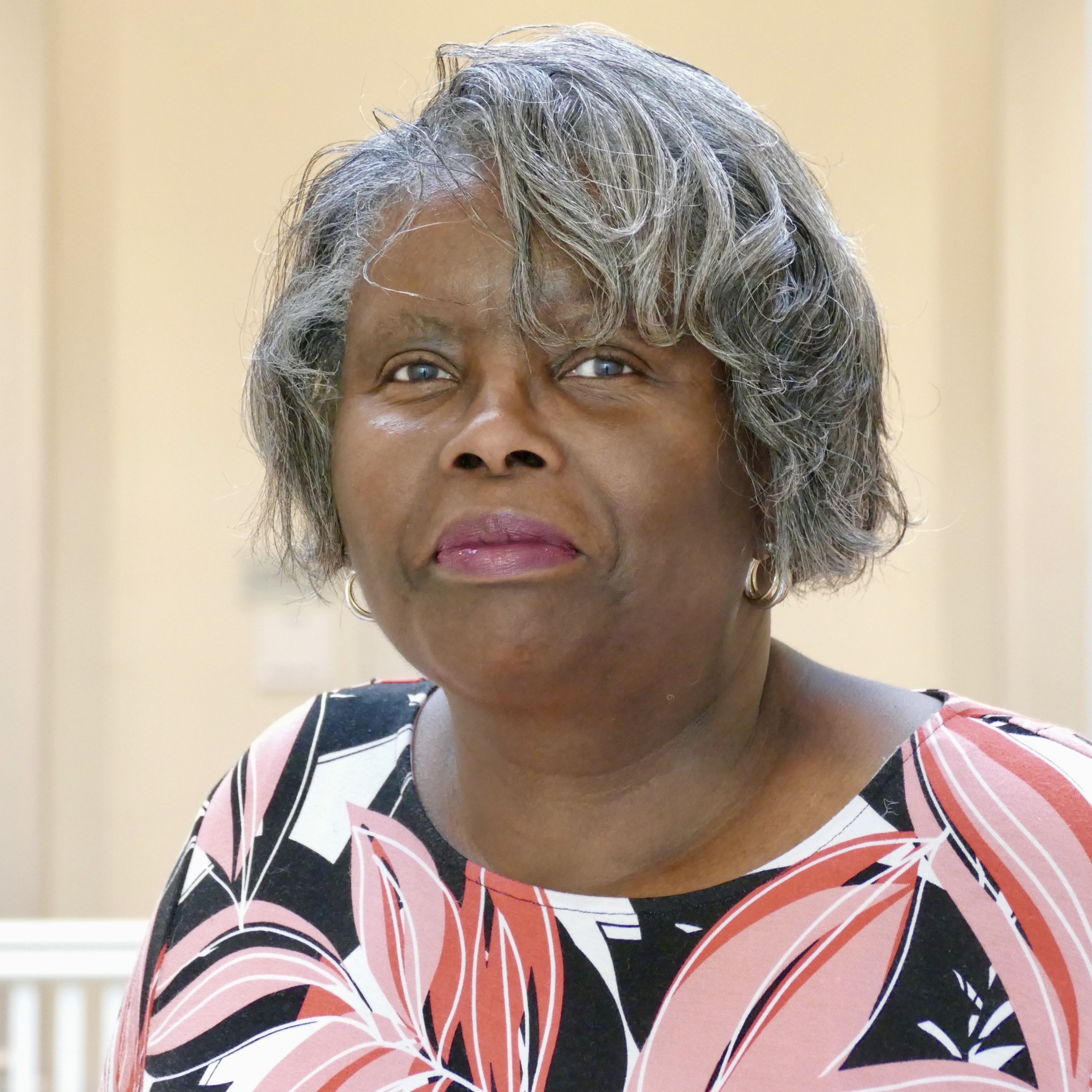 | Student Services Manager Campus Security Authority | 105A Hill Hall awarren@email.unc.edu (919) 962-6013 |
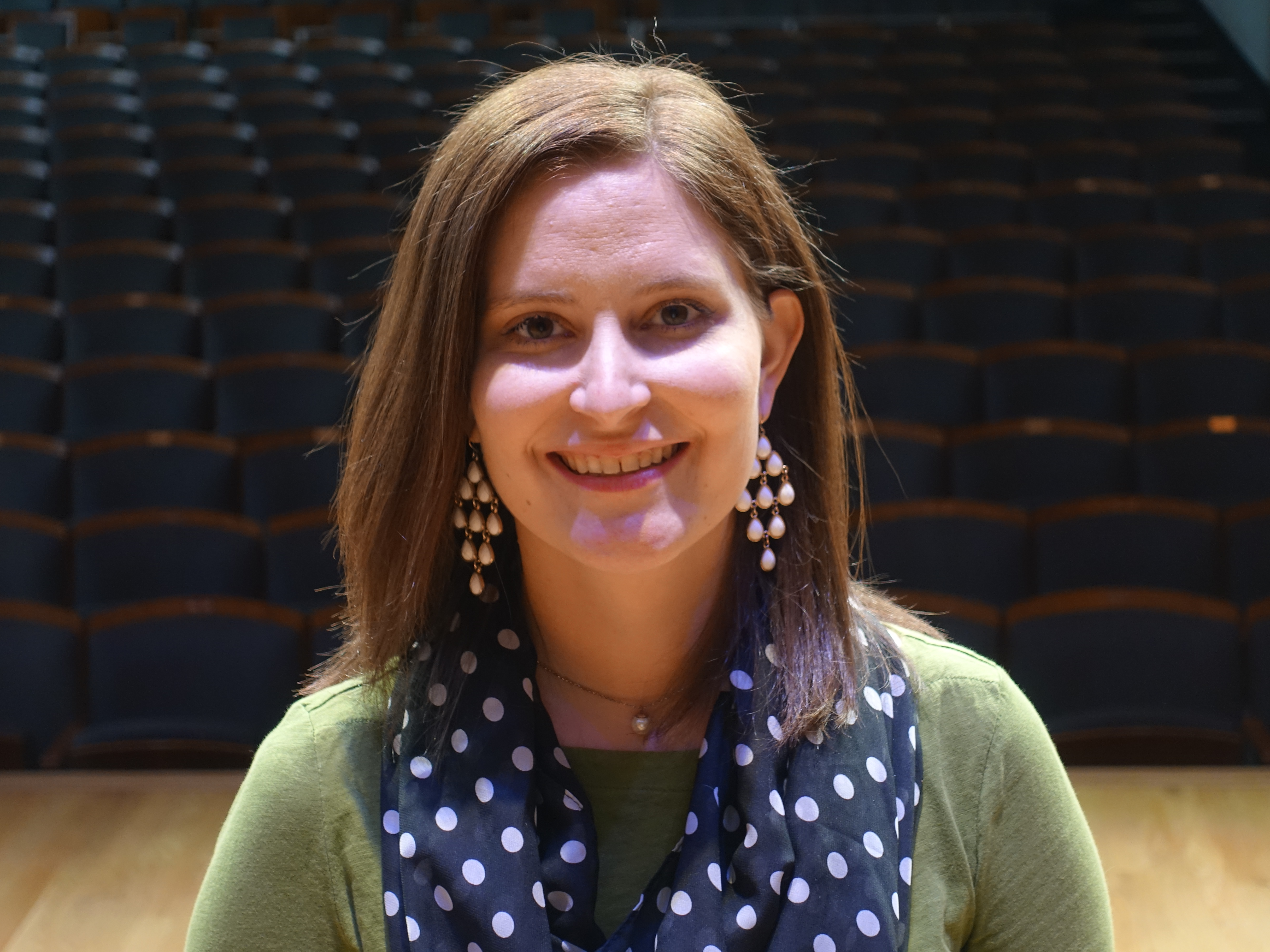 Cat Zachary | Communications Coordinator Campus Security Authority and Safe Zone & Mental Health First Aid certified | 105F Hill Hall cpzach@email.unc.edu (919) 962-1039 |
To see the full list of department faculty, please visit https://music.unc.edu/people/musicfaculty.
X. UNDERGRADUATE RESEARCH
The Music Department encourages undergraduate students to pursue research projects through the UNC Office of Undergraduate Research, the UNC Honors Program, and other forms of mentored study. The Music Department also offers specific financial awards to support independent research projects. All students are invited to explore opportunities through the Office of Undergraduate Research, where additional grants, fellowships, and programs are listed. We encourage all students to consider undertaking a Senior Honors Thesis project as part of their music degree at UNC.
Independent Study
Independent study courses provide an opportunity for students to pursue a special research or academic interest under the direction of a faculty member of the Department of Music. As of Fall 2021, there are four independent study options in music:
- MUSC 296. Special Studies for Undergraduates. 1-3 Credits.
- MUSC 493. Music Internship. 3 Credits.
- MUSC 691H. Senior Honors Thesis in Music I. 3 Credits.
- MUSC 692H. Senior Honors Thesis in Music II. 3 Credits.
Please see the Catalog for course details and requirements.
A student who wishes to pursue an independent study should write a research proposal, consult with the Director of Undergraduate Studies or the Music Department’s Honors Advisor, and contact a faculty member who teaches in the research area of interest to supervise the project. After identifying a faculty supervisor, the student must complete an Independent Study Learning Contract through the Online Learning Contract Manager (OLCM) and a research proposal outlining the specific details of the semester-long project. Students should complete this process before the semester begins.
Deadline: The Independent Study Learning Contract must be completed and approved by both the faculty supervisor and the Director of Undergraduate Studies by the Friday of the second week of classes for fall and spring semesters; for summer semesters, the contracts must be completed and approved by the Friday of the first week of classes.
If you have questions about independent study, please contact the Director of Undergraduate Studies, Professor Lee Weisert at weisert@unc.edu. If you have questions about an honors thesis, please contact the Honors Advisor, Professor Brent Wissick (bswissic@email.unc.edu).
Resources
- Online Learning Contract Manager (Review the OLCM instructions here.)
- Mildred Brown Mayo Undergraduate Research Awards in Music
- UNC Office of Undergraduate Research
- UNC Undergraduate Research Programs and Application Deadlines
- UNC Honors Program and Honors Thesis in Music Resources
XI. HONORS PROGRAM
Eligible students are invited to apply for Honors Carolina (https://honorscarolina.unc.edu/), the undergraduate honors program. The Music Department offers some courses with the honors designation that Honors Carolina students can take as part of their honors coursework.
We also encourage students to undertake a Senior Honors Thesis. Students who must meet an eligibility requirement based on G.P.A., but are not required to have participated in the general Honors Carolina program. Interested students should contact the Department Honors Advisor: 2021-2022 Advisor TBA.
After contacting the Department Honors Advisor and identifying a faculty supervisor, the student must complete an Independent Study Learning Contract through the Online Learning Contract Manager (OLCM) and a research proposal outlining the specific details of the thesis project. We encourage students to begin planning for their Senior Thesis Project during their Junior year so that they can apply for summer research funds and potentially undertake relevant research opportunities prior to the start of their senior year.
Resources
- Online Learning Contract Manager (Review the OLCM instructions here.)
- Mildred Brown Mayo Undergraduate Research Awards in Music
- UNC Office of Undergraduate Research
- UNC Undergraduate Research Programs and Application Deadlines
- UNC Honors Program (View the UNC Honors Program Handbook here.)
XII. STUDENT RECITALS
Scheduling a Student Recital
Student recitals are scheduled on a semester basis through the department’s production manager, Jesse Moorefield. Priority will be given according to grade level and degree requirements (i.e. seniors who need to fulfill the recital requirement for their music degree will have top priority).
For seniors and piano students wishing to hold their recitals in Moeser Auditorium, please contact Jesse Moorefield (jmfield@email.unc.edu). To use Person Recital Hall or Kenan Rehearsal Hall for your student recital, please use the room request form found on our website. Please contact Jesse Moorefield for more details.
Creating a Student Recital Program
Though the Music Department office offers no formal assistance with student recital programs, we do provide templates to assist student recitalists in creating their own programs. You should feel free to adapt the visual style/format of these templates according to your preference (e.g. changing borders or fonts, adding or removing selections), but the information in the header and footer of the document should be used.
Step-by-step instructions/suggestions for formatting your program are included here and download the templates here. Please note also that these materials are simply a resource, and that students are responsible for formatting and copying their own recital programs.
Scheduling Recording Engineers and Videographers
Department recording engineers and videographers are available to schedule for student recitals. Please email Production Manager, Jesse Moorefield at jmfield@email.unc.edu, for details.
Pricing
Basic Audio Recording: $75
Multi-channel Audio Recording: $100
Audio and Video Recording: $150
XIII. BUILDINGS & PERFORMANCE VENUES
Kenan Music Building (125 South Columbia Street)
Open 7 days a week, 7:30 a.m. to 10:00 p.m.
Performance Venue | Kenan Rehearsal Hall (KMB 1201)
Dedicated in 2009, Kenan Music Building, Rehearsal Hall has a capacity of 200 for performances and 250 for rehearsals. The rehearsal hall is flexible in its set up and can be positioned for a horizontal or vertical seating arrangement.
If you would like to reserve Kenan Music Building, Rehearsal Hall, please fill out our online request form. Questions? Email uncmusicoffice+schedule@gmail.com.
Hill Hall (145 East Cameron Avenue)
Open 7 days a week, 7:30 a.m. to 10:00 p.m.
Performance Venue | James and Susan Moeser Auditorium
The historic heart of the music department in the College of Arts and Sciences, Hill Hall reopened in 2016 after an 18-month, $15-million renovation. Work centered on improvements to Hill Hall’s 430-seat auditorium and rotunda. The performance space was renamed the James and Susan Moeser Auditorium in honor of the former chancellor and his wife, who are organists and teachers at UNC.
If you would like to reserve Moeser Auditorium, please contact Jesse Moorefield, production manager, at jmfield@email.unc.edu. To book this facility, you will also need to fill out a facility use request form.
Person Hall (181 East Cameron Avenue)
Open 7 days a week, 7:30 a.m. to 10:00 p.m.
Performance Venue | Person Recital Hall
Built in 1797, Person Hall is steeped in history. Throughout the years, Person Hall has served all sorts of functions, from university chapel to chemistry lab. Person Recital Hall is ideal for smaller events with a total capacity of 100. It is also home to the department’s organ.
If you would like to reserve Person Recital Hall, please fill out our online request form. Questions? Email uncmusicoffice+schedule@gmail.com.
Scheduling a Room
In addition to the three venues above, the department also has a number of smaller spaces available for use that accommodate between 25 and 100 people. Music students may reserve rooms in the department, by using the request form found on the Facilities Calendar page.
Please email uncmusicoffice+schedule@gmail.com for more information.
XIV. MUSIC LIBRARY
UNC has a world-class Music Library containing scores, sound recordings, videos, journals, books, and e-books about all kinds of music. We subscribe to many streaming audio and video databases and other e-resources that students can access any time from the library website.
The UNC Music Library is located next to the Undergraduate Library on the first floor of Wilson Library. Our fall semester hours will be Monday – Friday 9 am-5 pm when you can check out materials, sit in our quiet study spaces, or use our turntables, players, and scanners. The Music Library also has a (b&w) CCI printer and two midi keyboards with Finale software, and lends laptop chargers and media drives. Library staff will be able to help you find resources you need for class assignments or answer your questions either in-person or online.
Everyone is welcome at the UNC Music Library!
XV. STUDY ABROAD AND GLOBAL PARTNERSHIPS
King’s College London Partnership
UNC-Chapel Hill’s partnership with King’s College London, a research-led public university in the heart of London founded in 1828, exemplifies a commitment to building robust and multi-level global collaborations. In 2005, the UNC-King’s Strategic Alliance was established, initiated by the College of Arts and Sciences at UNC-Chapel Hill and the School of Arts and Humanities and School of Social Science and Public Policy at King’s. The alliance has expanded to become one of the most ambitious partnerships between U.S. and U.K. universities, including longstanding and emerging joint activity in teaching, research and other initiatives in diverse fields.
A vibrant student exchange has taken place since 2002, with more than 900 students participating. Graduate students benefit from short-term visits, student-organized workshops and joint doctoral committees. Individual cooperation by faculty members has grown into broader collaboration including conferences, colloquia, joint research projects and publications.
In music, the King’s College London partnership supports graduate and undergraduate research projects, collaborative seminars, collaborative performances as well as long and short term study abroad. The goal is to create an easy conduit for cross-cultural discussions and projects that enhance our global, outward facing university.
To learn more about the full university partnership, visit https://global.unc.edu/partners-programs/strategic-partners/kcl/.
XVI. UNC MUSIC AMBASSADORS
UNC Music Ambassadors are a select group of undergraduates chosen by application to sustain dialogue between students and faculty on issues concerning the curriculum, facilities, personnel, and the University at large and represent the Department at various recruitment and visibility events on campus. Ambassadors represent the Department at various recruitment events and activities on campus, meet with prospective students, provide tours of the Music buildings, assist with prospective student days and audition days, serve on panels, and can answer questions you may have about the Department of Music.
For more information, please visit https://music.unc.edu/people/unc-music-ambassadors.
XVII. MUSIC FRATERNITY AND SORORITY SERVICE ORGANIZATIONS
Kappa Kappa Psi National Honorary Band Fraternity
Kappa Kappa Psi was founded on November 27, 1919 at then-called Oklahoma Agricultural and Mechanical College with the purpose of promoting the existence and welfare of the College and University Bands. It is a co-ed National Honorary Fraternity that is dedicated to providing service and leadership to band programs across the country. The Mu Eta Chapter at the University of North Carolina was founded on September 6, 2008 and is a constantly growing and developing organization.
For more information, email KKPsiMH.UNC@gmail.com, or visit the chapter website (http://kkpsimueta.wordpress.com).
Phi Mu Alpha Sinfonia
Phi Mu Alpha is a national, social fraternity with a strong emphasis on service through music. With more than 35 active members, the Alpha Rho chapter is one of the strongest in the state and has had a massive impact inside and outside the Music Department. Each year, our members work with the faculty to usher events, organize performances, raise funds for good causes, and positively influence younger musicians.
First started at the New England Conservatory in 1898, Phi Mu Alpha came to North Carolina on February 24, 1926 with the chartering of the Alpha Rho chapter at UNC-Chapel Hill. Since that time, many notable Tar Heels have had the experience of becoming Sinfonians, including Andy Griffith and Woody Durham. Our chapter is as strong as ever and we encourage you to speak with our active brothers, attend interest sessions, and formally rush in the spring semester.
For more information, email pmaunc@gmail.com.
Sigma Alpha Iota International Music Fraternity
Our mission is to encourage, nurture, and support the art of music. Since its founding, the sisters of Sigma Alpha Iota have dedicated more than 100 years to the highest musical scholarship, most esteemed character building, and friendly relations among female musical professionals.
Today SAI claims more than 110,000 initiated members belonging to more than 300 college and alumnae chapters. The chapter at UNC-CH is named Iota Tau and was installed on April 29, 1946. The founding chapter was formed in 1903 at the University of Michigan School of Music.
Over the past few years, Iota Tau has successfully aided in numerous service projects such as assisting with instrument petting zoos, donating stands to the music department, visiting the Children’s Hospital, and participating in Relay for Life. They also fund a music department scholarship that they raise money for throughout the year and they provide receptions for music concerts, events, and recitals. There are currently more than 40 active sisters at UNC who are bonded together by a love for music and a desire to further music throughout the world.
If you are interested in information regarding membership in SAI, please visit the SAI website (http://sigmaalphaiota.web.unc.edu/) or email sai.iota.tau@gmail.com.
Tau Beta Sigma – National Honorary Band Sorority
Tau Beta Sigma is a co-educational national honorary band sorority dedicated to serving college and university bands. Comprised of more than 160 collegiate chapters and more than 3,800 collegiate members with a balanced representation of women and men, TBS was founded on March 26, 1946, on the campus of Texas Tech University. Since 1947, Tau Beta Sigma has been recognized by Kappa Kappa Psi as “an equal affiliated organization with a parallel purpose, function, and role in the college and university band setting.” Our mission statement is to provide exceptional service to collegiate bands and promote equality and diversity, including empowering women in the band profession. We cultivate leadership, educational achievement, music appreciation, and community development. We are actively engaged in the community through music. The Iota Lambda chapter of TBS was founded on April 19, 2008 and has served the UNC Band Program through the completion of national service projects such as Women in Music, in addition to serving the outside arts community such as the Playmakers Repertory Company in Chapel Hill.
For more information, please visit our chapter’s website at http://tbsiotalambda.weebly.com or contact us at tbs_iotalambda227@yahoo.com.
XVIII. EXTRA-DEPARTMENTAL MUSIC STUDENT ORGANIZATIONS
You can find a full list of music student organizations on Heel Life. There are a broad range of organizations including a capella, musical theater, ukulele, therapy, and other groups. Many of these groups undertake community service in the form of offering lessons and performances.
XIX. Contact
Still have questions? Contact the music department office!
Phone: 919-962-1039
E-mail: music@unc.edu
August 2021
